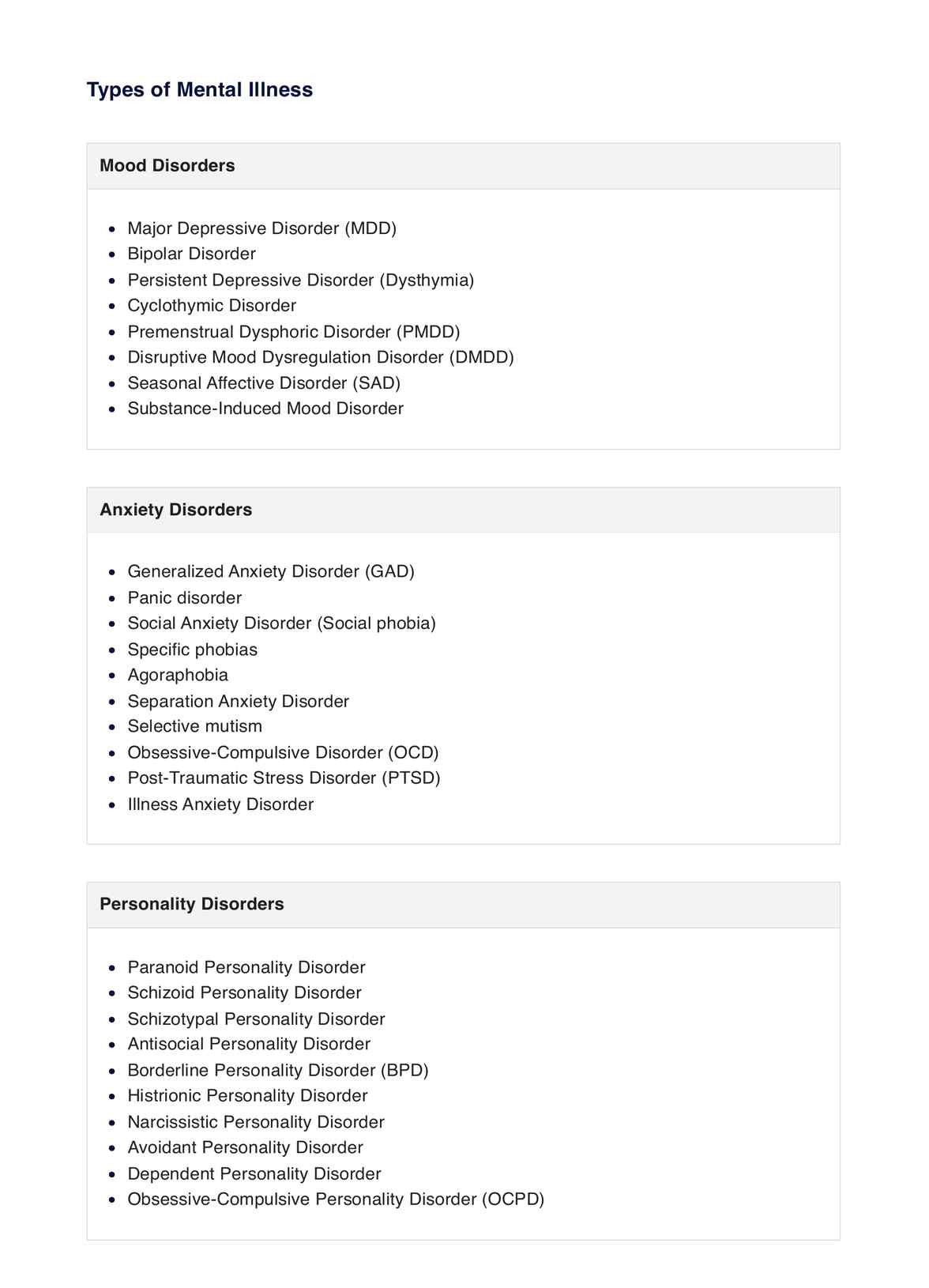Certain factors may increase an individual's risk of developing a mental illness. A family history, substance use, and even stressful life situations can heighten an individual's risk of mental disorders.

Types of Mental Illness PDF
Click here to discover more about the different types of mental health disorders and how this PDF can support you in your mental health clinic.
Types of Mental Illness PDF Template
Commonly asked questions
There is no sure way to 100% prevent a mental illness from developing. However, there are steps towards putting psychological well-being first. You can engage in tasks that boost self-esteem, soothe stress, and control any stressors.
There are many complications of mental illness that individuals can endure if their mental health is constantly declining. Issues such as family conflicts, decreased happiness, relationship difficulties, social isolation, suicidal ideation, and even self-harm.
EHR and practice management software
Get started for free
*No credit card required
Free
$0/usd
Unlimited clients
Telehealth
1GB of storage
Client portal text
Automated billing and online payments











